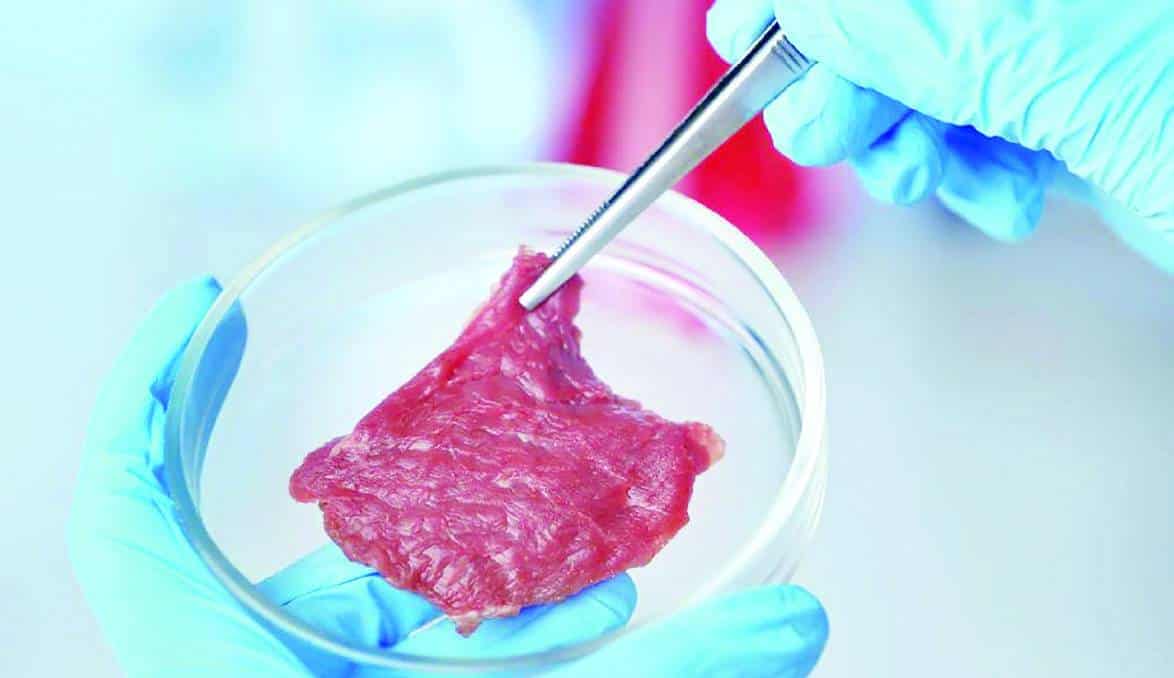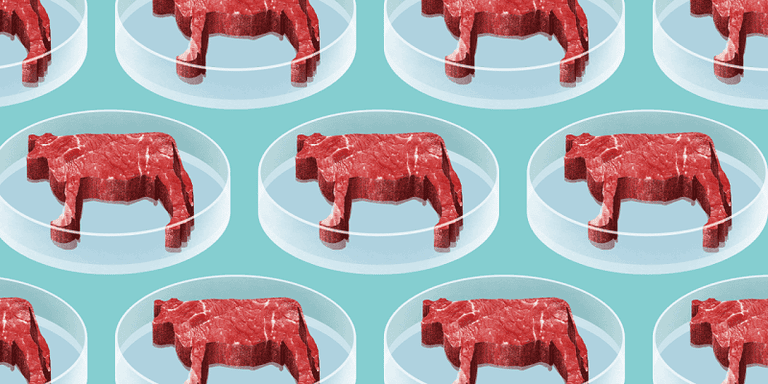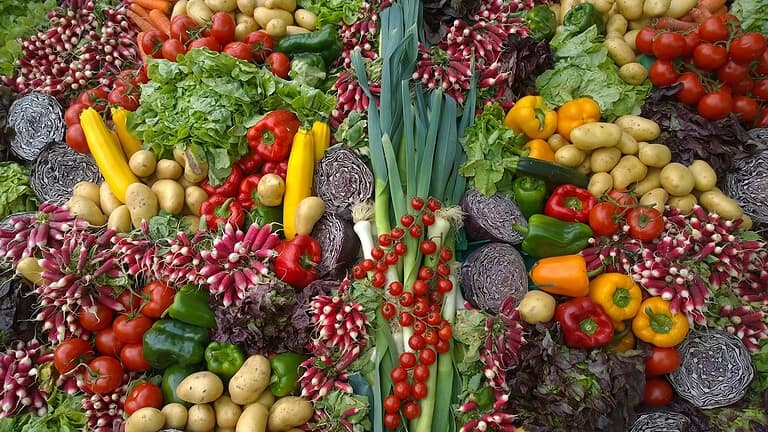Synthetic Food: Pros and Cons of Consuming Lab-Made Meals
I have been following the debate around synthetic food with great interest. Synthetic food is a product created in the laboratory from animal stem cells or plant-based ingredients. The technology used for its production is still relatively new and there is a lot of debate about its safety and nutritional value.
On the one hand, proponents of synthetic food argue that it has the potential to revolutionize the food industry. It could help to reduce the environmental impact of meat production, for example, by providing a more sustainable alternative to traditional livestock farming. It could also help to address issues around food security by providing a reliable source of protein and other nutrients. However, there are also concerns around the safety of synthetic food and its impact on human health.
What is Synthetic Food?
As I delve into the topic of synthetic food, I must first define what it is. Synthetic food refers to food products that are created in a laboratory using various techniques and technologies. These foods are typically made from synthetic or artificial ingredients and are designed to mimic the taste, texture and nutritional value of natural foods.
One of the most commonly used techniques for creating synthetic food is known as synthetic biology. This involves using genetic engineering and biotechnology to create new organisms or modify existing ones to produce desired traits. For example, scientists can manipulate the genetic makeup of yeast or bacteria to produce proteins that mimic the taste and texture of meat.
Another technique used to create synthetic food is known as 3D printing. This involves using specialized printers to create food products layer by layer using a variety of ingredients, including synthetic ones.
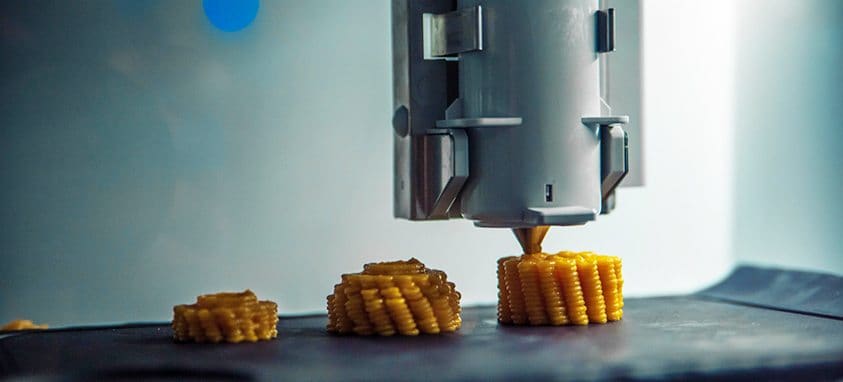
While synthetic food may sound like a futuristic concept, it has actually been around for quite some time. In fact, many of the processed foods that we consume on a daily basis contain synthetic ingredients. These can include artificial flavors, colors and preservatives.
The goal of synthetic food is to provide a sustainable and cost-effective alternative to traditional food production methods. However, there are also concerns about the safety and nutritional value of these products, which we will explore in more detail in the following sections.
The Pros of Eating Synthetic Food
When it comes to synthetic food, there are several advantages to consider. In this section, I will discuss some of the pros of eating synthetic food, including environmental benefits, food security and cost-effectiveness.
Environmental Benefits
One of the main benefits of synthetic food is its potential to reduce greenhouse gas emissions. Traditional animal agriculture is a significant contributor to greenhouse gas emissions, including methane and carbon dioxide. Synthetic meat, on the other hand, can be produced in a way that is more sustainable and emits fewer greenhouse gases.
Additionally, synthetic food production can reduce the amount of land, water and other resources required for traditional agriculture. This could help to preserve natural habitats and reduce the impact of human activities on the environment.
Food Security
Synthetic food production could also help to address issues related to food security. As the global population continues to grow, there is increasing pressure to produce more food. Synthetic food production could help to meet this demand, particularly in areas where traditional agriculture is difficult or impossible.
Synthetic food production could also help to reduce the risk of foodborne illness. Traditional agriculture can be susceptible to disease outbreaks and contamination, which can have serious consequences for public health. Synthetic food production could help to reduce these risks by producing food in a controlled environment.
Cost-Effective
Finally, synthetic food production could be more cost-effective than traditional agriculture. Synthetic meat, for example, can be produced using fewer resources and in a more controlled environment, which could help to reduce costs. Additionally, synthetic food production could help to reduce the price of food, making it more accessible to people who may not be able to afford traditional agricultural products.
In conclusion, synthetic food production has several potential benefits, including environmental benefits, food security and cost-effectiveness. While there are still some challenges to overcome, synthetic food could be an important part of our food system in the future.
The Cons of Eating Synthetic Food
As someone who has extensively researched the topic of synthetic food, I have come across several cons that one should be aware of before consuming it. In this section, I will discuss the health risks, taste and texture, and ethical concerns associated with synthetic food.
Health Risks
One of the main concerns with synthetic food is the potential health risks it poses. Synthetic food is often processed and contains artificial additives, which can lead to several health issues. For example, consuming too many artificial sweeteners can cause headaches, dizziness and even cancer in some cases. Additionally, synthetic meat products may contain high levels of sodium and preservatives, which can lead to increased risk of heart disease and other health problems.
Taste and Texture
Another downside of synthetic food is the taste and texture. While some synthetic food products may taste similar to their natural counterparts, many do not. For example, synthetic meat products often have a different texture and taste than real meat, which can be off-putting for some people. Additionally, synthetic food products may not have the same aroma or flavor profile as natural foods, which can impact the overall eating experience.
Ethical Concerns
Finally, there are ethical concerns associated with synthetic food. For example, some people argue that synthetic meat products are not ethical because they involve the use of animal cells. Others argue that synthetic food is not sustainable in the long run, as it requires significant resources to produce.
Meat and Cultured Meat
When it comes to meat and cultured meat, there are additional ethical concerns to consider. For example, some people argue that cultured meat is not ethical because it involves the use of animal cells and may not be considered vegan or vegetarian. Additionally, there are concerns about the environmental impact of meat production, which may not be fully addressed by synthetic meat products.
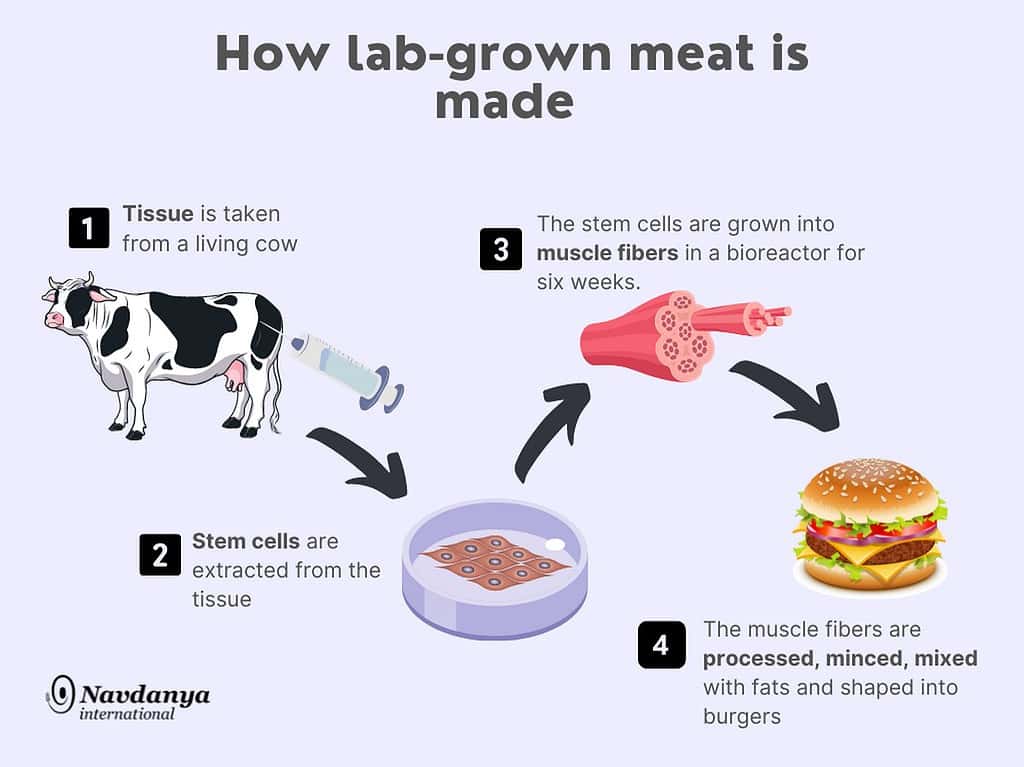
In conclusion, while synthetic food may have some benefits, it is important to be aware of the potential downsides. From health risks to ethical concerns, there are several factors to consider before consuming synthetic food products.
The Future of Synthetic Food
As I look to the future of synthetic food, I see both potential benefits and challenges. Here are a few things to consider:
Benefits
- Sustainability: Synthetic food has the potential to be more sustainable than traditional agriculture. For example, it could reduce the need for land, water and pesticides.
- Efficiency: Synthetic food production could be more efficient than traditional agriculture. For example, it could reduce the time it takes to grow crops and the amount of waste produced.
- Customization: Synthetic food could be customized to meet individual dietary needs and preferences. For example, it could be designed to be low in calories or high in protein.
Challenges
- Acceptance: Synthetic food may not be widely accepted by consumers. For example, some people may be uncomfortable with the idea of eating food that was not grown or raised in a traditional way.
- Regulation: Synthetic food will need to be regulated to ensure safety and quality. For example, it will need to be tested for potential health risks and labeled appropriately.
- Cost: Synthetic food may be more expensive than traditional food. For example, the technology used to produce synthetic food may be expensive to develop and maintain.
Overall, I believe that synthetic food has the potential to be a valuable addition to our food supply. However, it will be important to address the challenges and concerns associated with it in order to ensure that it is safe, sustainable and accessible to everyone.

